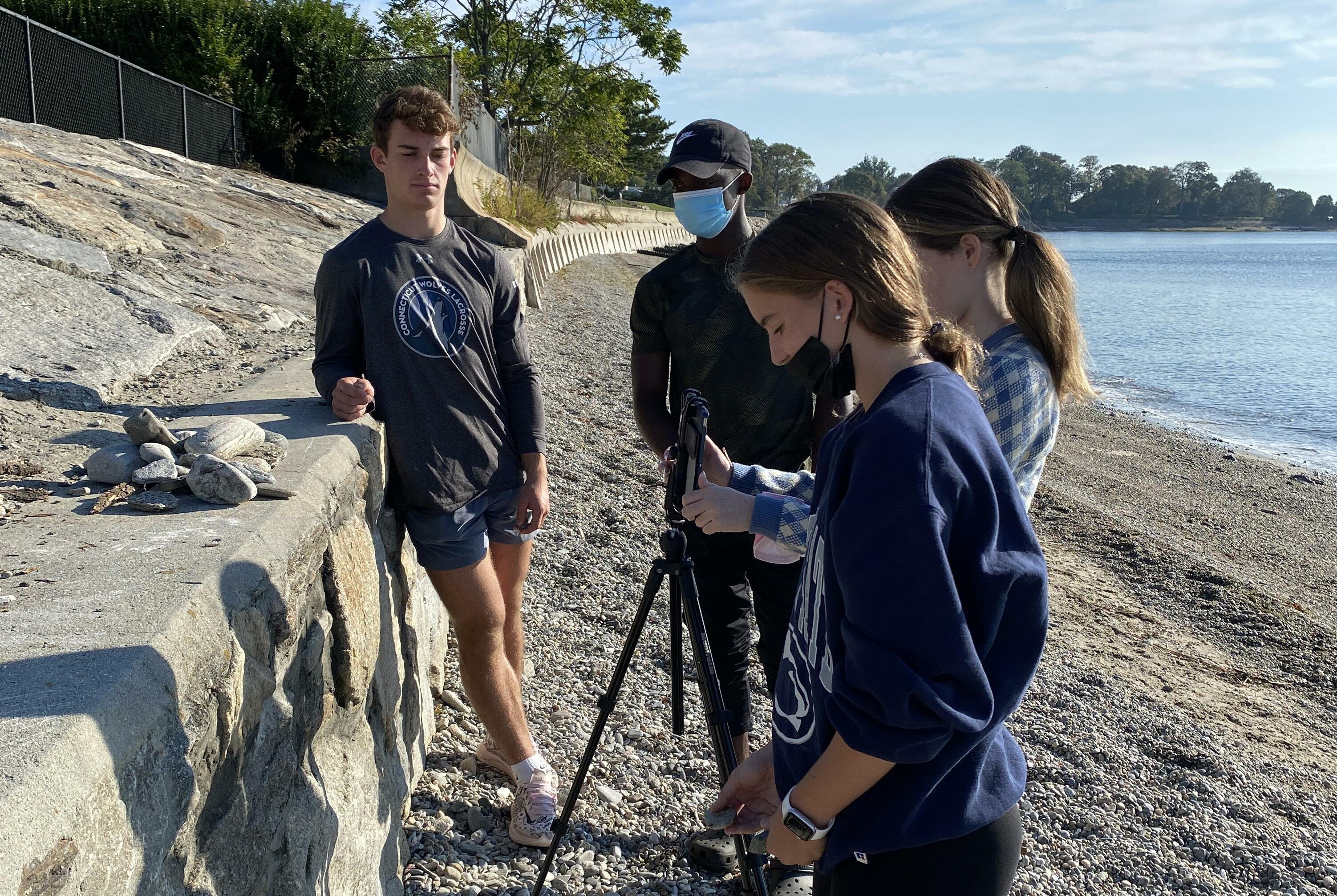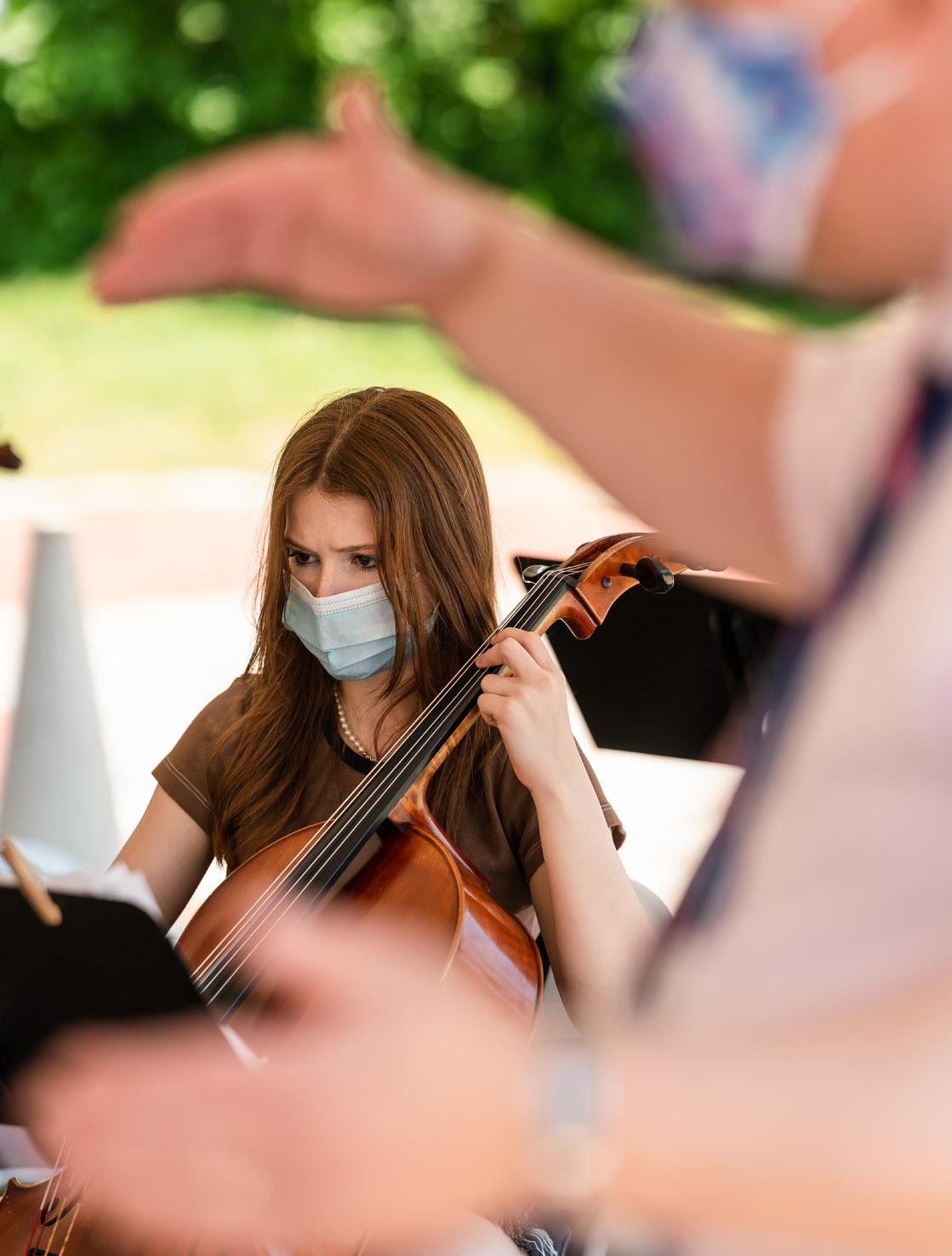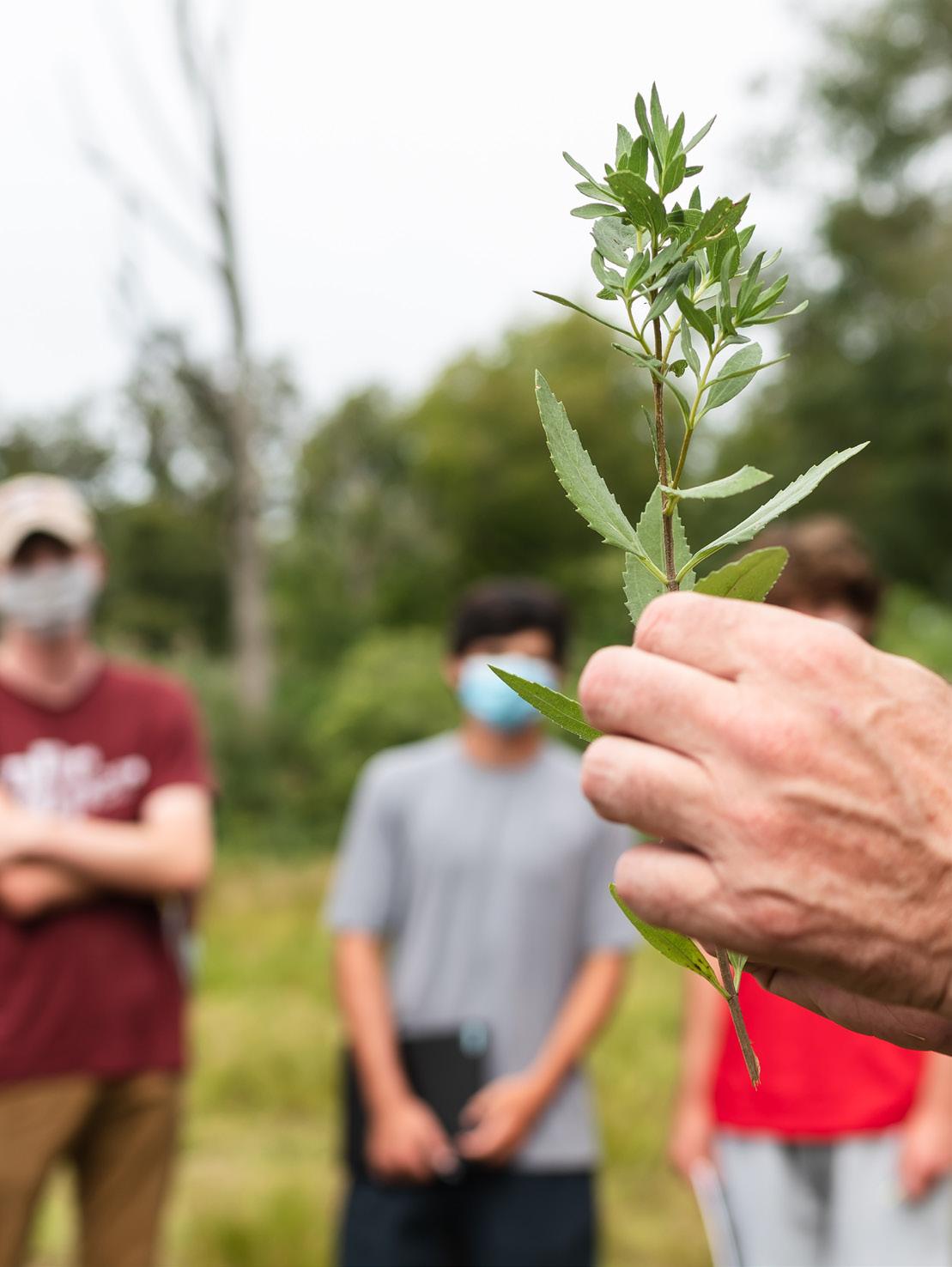science
missions between them, students will propose a project through which they can further express their vision and voice, and partner with the instructor(s) to fully develop the project. They will submit an academic paper with the dramaturgical rationale for the choices they made, based on relevance to both the piece and their creative vision. The project culminates in a final presentation to an appropriate audience. Prerequisite: Advanced Theatre. Open to 12th-graders. (1 credit; full year) SCIENCE SCI250 Biology This is the first required course in our science curriculum. Students will explore how humans and other living things stay alive, evolve, and interact. Using interdisciplinary thematic units, students will learn about important foundational biology topics, including evolution, ecology, metabolism, cell biology, genetics and physiology. Students will learn to think like scientists through practice with data, inquiry-based labs and case studies. Students will also learn how to think critically, evaluate experimental data and use scientific reasoning to write strong scientific arguments. Typically taken in 9th grade. (1 credit; full year)
SCI400 Chemistry This course is designed to provide students with an understanding of the fundamental principles of chemistry. Units of study include classifying and quantifying matter, atomic structure, bonding, chemical reactions and stoichiometry, energy in reactions, and water and solution chemistry. Student-directed activities such as student-centered group learning activities, simulations, and laboratory work are integral parts of the course. Projects give students an opportunity to examine the applications of chemistry in society. Typically taken in 10th grade. (1 credit; full year) SCI450 Chemistry This course is designed to provide a strong background in inorganic chemical principles. The major topics of study include atomic structure, chemical reactions, stoichiometry, periodicity, chemical bonding, forces and theories of matter, solutions, thermodynamics, equilibrium, acid-base chemistry, and redox reactions. Brief units on additional topics such as nuclear chemistry or organic chemistry may also be explored. Laboratory experiences provide students with hands-on opportunities to study the topics covered during lecture. This course has a strong emphasis on problem-solving, critical thinking, and collaborative learning. Prerequisites: grade of B+ or higher in math, B or higher in honors math; departmental permission. Typically taken in 10th grade. (1 credit; full year) SCI500 Physics This course is an introduction to the principles of physics through a conceptual- and algebra-based approach. Topics include a traditional study of mechanics—kinematics, Newton’s laws, energy, momentum, gravitation and other mechanical concepts. In addition to basic physical principles, the course examines the role of physics in society. The course has a conceptual and interactive approach, with frequent hands-on laboratories, activities, and projects; real-world applications; and problem-solving. Prerequisites: Biology and Chemistry; concurrent enrollment in or completion of Algebra 2. (1 credit; full year) SCI550 Physics This course investigates the traditional topics of motion, momentum, energy, light, electricity, magnetism, and atomic and nuclear physics. Emphasis is placed on applying math techniques to problem-solving and developing basic principles from analysis of lab work. Prerequisite: concurrent enrollment in or completion of Pre-Calculus H, or A- or better in Pre-Calculus; departmental permission. (1 credit; full year)
24









